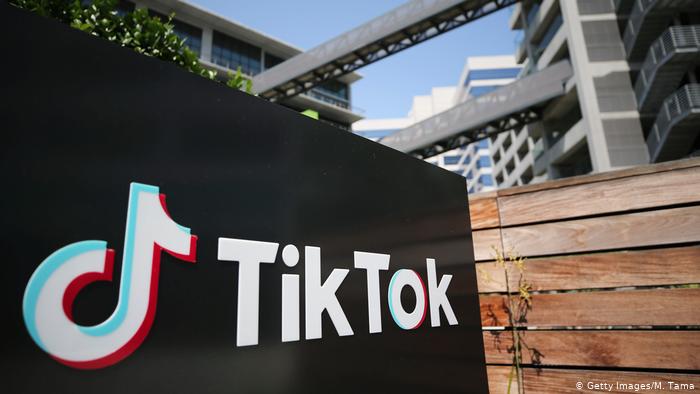
The US government's push to ban TikTok faced a new legal obstacle on Friday when a federal judge issued a preliminary injunction to postpone the clampdown.
The lawsuit was launched by three US video creators — comedian Douglas Marland, musician Alec Chambers, and fashion designer Cosette Rinab — each of who can boast over one million followers on the app. The trio argued that the ban would hamper their free speech. Pennsylvania judge Wendy Beetlestone sided with the plaintiffs in her decision, while also noting their concerns over their income and career opportunities.
She stated that the ban, originally set to go into force on November 12, would "have the effect of shutting down, within the United States, a platform for expressive activity used by approximately 700 million individuals globally."
Courts deliver one-two punch
The Trump administration has argued that the Chinese-owned app constitutes a security risk. Washington says that Chinese authorities might gain access to the data of some 100 million TikTok's users in the US. The US Department of Commerce now aims to bar US companies from storing TikTok data, cutting the video-sharing platform off from crucial online services.
In her Friday ruling, Beetlestone said the US government's security concerns were presented hypothetically.
A preliminary injunction serves to freeze the legal situation until the court reaches a verdict. However, the Trump administration plans were already disrupted by a separate injunction in September. In this case, the platform's lawyers argued that banning the app from online stores would infringe on the company's First Amendment rights, which protect freedom of speech, and do irreparable harm to the firm.
The September injunction allowed TikTok to keep offering its app on Google and Apple stores.
TikTok 'deeply moved'
Commenting on the Friday decision, TikTok said it was "deeply moved by the outpouring of support from our creators, who have worked to protect their rights to expression, their careers, and to helping small businesses, particularly during the pandemic."
The company has disputed the Trump administration claims of danger to US users' data. Its representatives point out that user information was not stored in China, but instead on servers in the US and Singapore.
Washington has also been pushing for TikTok, which is owned by the Chinese ByteDance company, to sell off its US-based operations. TikTok is currently mulling a deal with the US software giant Oracle Corporation and the chain retailer Wallmart to obtain stakes in a new company, TikTok Global.